#domestic law
Explore tagged Tumblr posts
Text
#Rishi Sunak#Parliament#Rwanda asylum plan#deportation flights#asylum seekers#legal challenges#House of Lords#legal safeguards#international law#domestic law#safe country#parliamentary ping-pong#legislation#George Orwell#1984#general election#stop the boats#small boats#small boat capsized#spending watchdog#financial assessment#£600 million#Reuters.#uknews
0 notes
Text
Last month, England and Wales took the first step towards legalising assisted dying (a separate bill is under consideration in Scotland, while Northern Ireland is described as “left behind” on the issue). After a five hour debate in Parliament, MPs voted by 330 to 275 in favour of the The Terminally Ill Adults (End of Life) Bill. As it stands, the bill would allow terminally ill adults with an expected six months left to live to end their own lives. They would have to make two separate declarations, signed by either themselves or a proxy (who can be someone who has known them for two years or someone of “good standing” in the community), and their eligibility would have to be confirmed by two doctors and a High Court judge.
The vote to approve this bill is being presented by supporters of the right to assisted death as a victory for dignity, compassion and bodily autonomy. The ultimate in the right to choose. And on these bases you might assume that I am one of those people. After all, I do believe in bodily autonomy. I hope it goes without saying that I believe in dignity and compassion in death as in life. And, of course, I believe fervently in the right to choose what happens to your own body.
But rather than these beliefs leading me to support this bill, they are in fact the reason that I have my doubts. Let me explain.
Like most good liberals, when I historically thought at all about assisted dying I considered myself to be in favour of it — although admittedly without having thought through any of the details. There is no doubt whatsoever that current end of life care leaves far too many people suffering a painful and undignified end. There is also no doubt that some people, out of fear of such an end, have ended their lives earlier than they might otherwise have chosen to, while they still had the ability to travel to Dignitas in Switzerland. Family members have faced the choice of letting their loved one travel and die alone in a foreign country, or to go with them and face the risk of prosecution on their return. None of this is humane. And legalising assisted dying seems like an obvious way to address these issues. That, in any case, was what I historically thought.
But a few years ago, doubts were introduced in my mind when I was a judge on the Royal Society of Literature’s Christopher Bland Prize. One of the books submitted to us was a memoir by Alastair Santhouse, a consultant neuropsychiatrist at The Maudsley Hospital in London. The book, Head First: A Psychiatrist’s Stories of Mind and Body, didn’t make the shortlist in the end, but it did make a lasting impact on me, most notably on my opinion of assisted dying.
Santhouse opens his section on the topic by recounting his first experience of a practice he was later to discover was so common it had a name: “granny dumping.” That is, the depositing of an unwanted elderly relative (the name suggests usually a female relative — we’ll come back to this) at a hospital over Christmas. The elderly woman in question here was brought in by her son and daughter-in-law who told Santhouse, “She just isn't right,” before leaving and turning off their phones. On her own, the woman, now in tears, told Santhouse there was nothing wrong with her. “They just don’t want me over Christmas.”
This episode may shock you as it did me. The thought of doing such a thing to my own mother causes me physical pain in my stomach and a lump in my throat. I simply cannot bear it. But, says Santhouse, the medical profession quickly disabused him of his “notions of people always behaving honourably or having respect for the elderly.” And it is his decades of experience, his repeated witnessing of this lack of honour and respect for older people, that makes him so implacably opposed to assisted dying.
While some may have taken a calm and rational choice to end their lives, there are an unquantifiable number of people who may be pressured or coerced into doing so. […] As they approach the end of their lives, people feeling unwell and scared can experience a pressure, spoken or implied, to let their families collect the inheritance that they would otherwise not get if they had to pay for medical or nursing home fees. They may also feel a pressure to release their families from the burden of caring for them. Vulnerable, frightened patients may only feel loved, accepted and valued by their families if they take the decision to end their lives by assisted suicide. — Santhouse (2021) pp. 206-7
As my parents have aged I too have witnessed some of this lack of honour and respect for older people in action. For example the time an impatient male carer made my strong, capable, fiercely independent mother cry when she was, in the immediate aftermath of a hip operation, feeling none of those things. I have also seen how quickly someone who is strong, capable and fiercely independent can suddenly become scared, uncertain and vulnerable when they lose their independence, even if, as with my mother, it was only temporary. It is far from unbelievable that someone in this state could be quite easily coerced into agreeing to end their own life. Rather, it is frighteningly believable. Indeed I personally know of at least one case where someone felt pressured (to my knowledge never overtly vocalised, but as Santhouse points out, this pressure does not need to be spoken to be felt) into arranging their own death, before at the last minute changing their mind. How many others have simply gone through with it?
Well, according to a recent report on assisted dying, “mercy killings” and failed suicide pacts, that is a question for which we do not have an answer and nor are we likely to get one any time soon. Written by the think-tank “The Other Half, the “Safeguarding women in assisted dying” report notes the “secrecy” that is “built into the latest assisted dying proposals in the UK.”
This is also true of countries thought to be exemplars like Oregon and the Australian states. In Oregon, death certificates do not include a note of assisted dying. All provider information on assisted deaths is deleted after the annual report is prepared. This simple data report does not, and would not, reveal the kind of abuses we fear here. In Canada, there are stories now emerging of families who have tried to prevent their relative being given MAID [medical assistance in dying] —as they believe they are not terminally ill. Families cannot get access to medical records to understand if their relative was coerced. The state protects itself and those who are involved in delivering death. — The Other Half (2024)
The abuse the authors of this report in particular fear is state-delivered domestic homicide — and not without good reason. Although the UK inexplicably only started including over 75s in domestic abuse statistics in 2020, we know that elder abuse is far from uncommon. We also know that women live more years than men in ill health, and that having a disability doubles a woman’s risk of being domestically abused. The law in England and Wales has also recently recognised suicide as an outcome of domestic abuse (indeed, data suggests it may be more common even than homicide) and has outlawed the “rough sex defence” through which men who killed their sexual partner via strangulation achieved leniency in prosecution and sentencing.
We cannot claim therefore to be ignorant of the clear vulnerabilities women face, nor of capacity of violent men to exploit the law to justify their abuse. And yet despite this knowledge, the potential for these laws to be used in the furtherance of violence against women has been shamefully absent from the assisted dying debate.
And not just here in Britain. The report highlights that most countries that have legalised assisted dying don’t even consider domestic abuse in their safeguards (which are mostly concerned with will beneficiaries), let alone collect or publish any data on the issue. Meanwhile, assisted dying campaigners in the UK have championed two male mercy killers with a history of domestic violence, one of whom had previously been imprisoned for bludgeoning his second wife with a mallet.
The result of this data gap on domestic abuse and assisted dying is that it’s hard to quantify exactly how widespread the problem is. We do have some indications, however. We know that in Canada, women “seem 2 times more likely to seek MAID track 2—which allows for those with non ‘reasonably foreseeable’ deaths to die” — that is, women who are not terminally ill. We know in Belgium that women dominate the figures of those given “psychiatric euthanasia.” Why are these psychologically troubled women so much more likely to seek death than their male counterparts? The data is silent on this issue, and the states in question seem in no hurry to uncover the reason behind the sex discrepancy.
In the Bill as it currently stands in England and Wales, assisted death for the mentally unwell would not be an immediate issue, since the law would apply only to terminally ill patients — but the example of countries that have gone before us shows how easily and quickly the concept of “terminal illness” can be and has been stretched.
…it is estimated that now 3 per cent of Belgian and Dutch assisted deaths are for psychiatric disorder. Psychiatric illness is not usually terminal and suicidal impulses are often part of the illness itself. To have a state-sanctioned way for such people to end their lives should be a cause of concern for everyone.
One study showed that 50 per cent of Dutch psychiatric patients asking to die had a personality disorder* (a very unstable diagnosis with symptoms sensitive to social pressures), a figure similar to that in Belgium. Twenty per cent had never been hospitalized because of mental health problems (which calls into question how severe they are) and, in 56 per cent of cases, loneliness and social isolation was thought to be an important factor. This in turn raises the question as to whether assisted suicide is being used instead of proper social and mental health care. Perhaps the most troubling statistic in the study was that in 12 per cent of cases in the Netherlands, the three assessors had not agreed unanimously on the decision, and yet the assisted death went ahead anyway. — Santhouse (2021) p. 209
This final statistic is echoed in a finding from The Other Half report, which notes that in Western Australia, guidance states that “feeling a burden” is meant to be a red flag for assessors determining a patient’s eligibility. But despite “more than a third of those approved reporting they felt a burden, Western Australian medics decided that everyone who applied for VAD was eligible in acting voluntarily and not being subject to coercion in 2023-24.” Which, to say the least, stretches credulity; as the authors of the report put it: “It is startling that despite the prevalence of domestic and elder abuse in Australia, the assisted dying safeguards for these picked up absolutely no one at all.”
Well, quite.
Santhouse also raises concerns about safeguarding, noting that “as the experienced expert who would be asked to undertake [safeguarding] assessments,” their presence is “no reassurance whatsoever.” It is, he writes, “extremely difficult to truly know someone's motives, including the motives in someone asking for assisted dying. This is particularly the case where the individual concerned is frightened, vulnerable or wants to please others, and do what they believe others want them to do.”

Source: The Other Half (2024)
[Image description: an excerpt from The Other Half, "The 2006 killing of Mandy Horne in Shetland was widely reported as a Romeo and Juliet, mercy killing by her husband - Mandy had MS. Both died so there was no investigation. Only through Mandy's father and a curious Times journalist was it later revealed to be a very violent murder and suicide by Mandy's husband: he's also killed their pets. The night before she died, Mandy had asked friends to stay because she was scared of her husband."]
But despite the failure of states that have legalised assisted dying to collect data on its intersection with domestic violence, we are not entirely without pertinent evidence. By combing through “news reporting, inquest findings, sentencing remarks and court of appeal judgements where killings and attempted killings were said by a judge, coroner or defence to be part of a mercy killing, or (failed) suicide pact,” The Other Half report authors have identified and reviewed more than 100 “mercy killings” and “failed suicide pacts” — and they make for sobering reading.
The Other Half’s research revealed that “at least 5 UK men per year violently kill women who are disabled, elderly or infirm, under the guise of mercy killings.” Eighty-eight per cent of the killers were male, overwhelmingly husbands and sons, and the killings were extremely violent, involving “cutting women’s throats, bludgeoning them, shooting them, or using stabbing, suffocation and strangulation.” One woman was thrown off a balcony by her son. Another was strangled with her dressing-gown cord by her husband. Many women had their throat slit. “Overkill,” the authors found, was frequent. Meanwhile, men are “overwhelmingly the survivors of ‘failed suicide pacts’.”
Having my throat slit, or being strangled with my dressing gown cord, or being thrown off a balcony does not sound particularly merciful to me, and whether or not you wish to die, it is hard to imagine anyone choosing to die in such a violent manner. But the vast majority of these women did not ever express a wish to die at all, let alone to die violently. 78% of them were not even terminally ill, being simply “disabled or elderly and infirm.” The report identified an increase in a woman’s care needs as a trigger for a mercy killing.
The majority of these men were let off with suspended sentences and sympathy from judges who repeatedly spoke of the “exceptional” nature of these strikingly similar cases (the report found that the few women who engage in “mercy killing” generally get a life sentence), with “very limited data, if any, data [being] collected by the state on these deaths, and no learning or curiosity.” One man let off with a suspended sentence had written the joint suicide note himself with no input from his wife; another had a history of domestic violence against his dead wife. And, let’s not forget, these lenient sentences all took place in a context where assisted dying is illegal. It’s also worth pointing out that this analysis would not have been possible if these mercy killings had taken place under the auspices of the new bill, because none of the information would be publicly available.

Source: The Other Half (2024)
[Image description: excerpt from The Other Half, The judicial safeguard: even criminal court judges are not able to spot patterns in so called mercy killings. Selected judicial remarks to mercy and failed suicide pact killers. "This is indeed an exceptional case" - Scotland husband smothered wife who'd returned home from hospital. "A tragedy for you...exceptional in the experiences of this court. You were under immense emotional pressure...you acted out of love." - Husband wrote his wife's suicide note then cut her throat. Suspended sentence. "I conclude the mental torment engendered by the impossible situation in which you found yourself must have been intolerable." - Husband strangled wife after she had broken her vertebrae and had been unable to look after him. Suspended sentence. "[The judge] decided to suspend the sentence due to the 'exceptional' circumstances" - Father helped his daughter take an overdose then suffocated her. She had been receiving (poor) inpatient mental health care in hospital. Suspended sentence. "It was, in part, an act which you believed to be one of mercy." - Husband knocked his wife out with a dumbbell then slit her throat. She had dementia. Suspended sentence. "the defendant was not coping with the strain of being the principle carer...I accept at the time he did believe he was doing what he believed to be an act of mercy." - Husband smothered wife with clingfilm. She had Parkinsons and had recently has a fall. Suspended sentence. "the case was exceptional and jail would not be appropriate" -Husband gave his wife an overdose of antidepressants and suffocated her in a plastic bag. "I accept in killing your wife you were doing so because you felt this was the only way to limit or prevent her suffering." - Husband pushed his wife down the stairs and then strangled her. She had dementia. Suspended sentence. "The taking of a life is always a grave crime, but the exceptional circumstances of this case require the court to show compassion." - Husband cut his wife's throat after her dementia worsened. Suspended sentence. "indeed true love...an exceptional case" - Husband attempted to bludgeon his wife to death with a hammer. Suspended sentence. "a most unusual and very sad case" - Husband struck his wife with an iron pole, then smothered her as she sat in bed. Suspended sentence. "You were convinced that she was suffering and it was more than you could bear." - Son threw his mother off a balcony as she was receiving end of life care. Suspended sentence.]
But what about all the people who are not coerced, you may be thinking at this point. Don’t they have a right to bodily autonomy? Don’t they have the right to choose?
To this I have two points, the first of which is that rights in a democracy must be balanced and the right of one person to willingly choose to end his life must be weighed against the right of another person to choose to continue with hers. Nothing about the debate so far, nor the bill in question, makes me at all confident that this balance has even been considered, much less achieved. As Sarah Ditum noted in her excellent piece in The Times, published shortly before the vote took place:
But for legislation that relies on the principle of informed consent, there seems to be a strange haste to get it on the books without fully investigating its implications. The full text of the bill was published last Tuesday; MPs will vote on its second reading less than two weeks from today. This is not ideal, particularly when the issue is as consequential, ethically and practically, as medically administered death.[…] Before taking a neutral stance on a bill, the government should scrutinise it, including producing an impact assessment and a legal issues memorandum. These are supposed to be made available one month before the second reading, but as they don’t currently exist and the second reading is less than a month away anyway, that isn’t going to happen. — Ditum (2024)
Beyond this lack of proper scrutiny is the question of whether the state of care for those living with illness, whether terminal or not, gives people a meaningful choice to make. Certainly, the Health Secretary Wes Streeting doesn’t think it does, leading to his voting against the bill. Neither, apparently, does the Voluntary Assisted Dying (VAD) programme in Australia, if the pamphlet cited by The Other Half is anything to go by, featuring as it does this family quote: “The voluntary assisted dying process was really the first time that any medical and allied health practitioners had given such understanding and empathy to my sister's suffering, and that was such a relief.”
And, sure, you could read this as approbation of the VAD programme. Or you could read it as an indictment on the care system.
For his part, Santhouse says his experience is that when people are asking to die, “they are commonly communicating something different.”
They are asking for help to live. They are saying that they can't see how they can cope with the problems that they have, and are asking for help in finding a way through the seemingly impossible difficulties that lie ahead. To take their request at face value, and to whisk them over to the nearest assisted dying clinic, is to abrogate our responsibilities to the patient. — Santhouse (2024), p.210
If people are not making a free choice, if people are choosing death not because they want to die but because we have failed so abjectly to make living bearable for those who need care, what does that say about us as a society?
Similarly, as the Other Half notes in its examination of female suicidality in response to domestic violence, it “is impossible not to imagine a scenario that a woman in abusive situations would find it easier to access NHS assisted dying than support to create new life away from her abuser.” Certainly, assisting her death would be cheaper, a concern which was also raised by Santhouse, who fears that legalising assisted dying would make it “far easier to give up on people once the going gets tough.”
Advocates for assisted dying often rebut concerns about the morality or ethics of assisted dying by pointing to the strong public support that their position holds. And it’s true: my opinion is, as they say, unpopular: a poll conducted by Opinium earlier this year on behalf of pressure group Dignity in Dying found that 75% of the British public supports assisted dying.
But how many of the British public really understand the implications of how this works in practice? How many of them are thinking about the violence of the mercy killings we are asked to sympathise with, or the ease with which vulnerable people can be coerced into unwillingly ending their own lives? I ask, because when you poll British people who are more likely to have a good grasp of how assisted dying might work out in reality, the support drops rather precipitously.
A recent survey by the British Medical Association found that 50% of doctors were in favour of the legalisation of assisted dying, which is already a substantial drop from the position of the general public. The difference was even more pronounced when considering only palliative care doctors, that is, the doctors who are most likely to have direct experience of the realities for the patients involved (how good care can change their attitude to life; how vulnerable to coercion patients might be). Among these doctors, 76% were against a change in the law — almost the exact inverse of the opinion of the general public.
Where we go from here is unclear. The Terminally Ill Adults (End of Life) Bill is now at the committee stage, where it will hopefully receive some of the scrutiny that has to date been sorely lacking —although given parliamentary timetabling restrictions this is by no means guaranteed. In the meantime, social and palliative care continues to be underfunded and under-resourced. And some men will continue to violently kill some women, and the state will continue to allow most of them to get away with it.
In a weird coincidence, shortly after I wrote this piece a friend of mine told me about the Christmas care package that had been sent by Age UK to her mother and aunt:

[Image description: A collection of gifts that includes slippers, a blanket, shortbread biscuits, a box of Celebrations chocolates, other unidentifiable edible or wearable treats.]
Age UK apparently sends these packages out to people on benefits with age-related health problems, and it’s such a brilliantly practical and caring idea I was inspired to set up a monthly donation to the charity.
Here’s why you should too: ageing is a feminist issue. Older women are poorer (thanks to the pay and pensions gap) and more frail and in poorer health (thanks to the health data and treatment gap) than older men. They are also more likely, thanks to sex differences in unpaid care (see Invisible Women for stats on this), to have spent their life taking care of other people. So, this Christmas, instead of “granny dumping,” let’s return the favour and make sure older women are taken care of themselves as they have taken care of all of us.
The link to donate again is here.
#disablility#feminism#invisible women#right to die laws#assisted dying#trigger warning#violence against women#violence against disabled women#domestic abuse
412 notes
·
View notes
Text
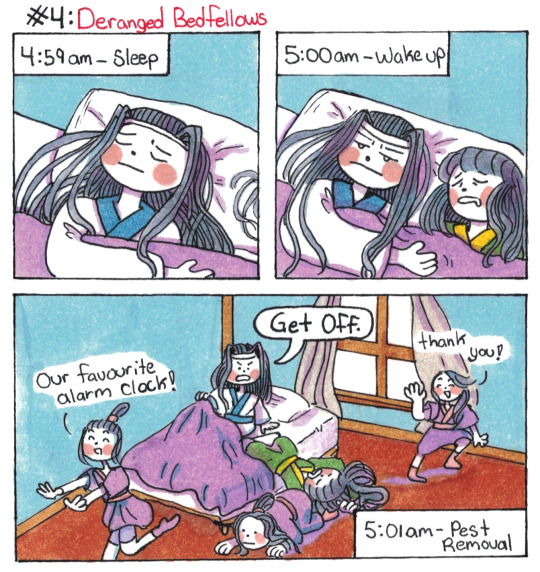
Lan Wangji Goes To Lotus Pier AU: Part 4: Deranged Bedfellows
(Part 1, Part 2, Part 3, Part 4.5)
#poorly drawn mdzs#mdzs#mdzs au#lan wangji#nie huaisang#Yungmeng Jiang training arc AU#This is the *first* part of what was supposed to be a much longer comic (LWJ's morning routine in full).#I'll finish the remaining part as a reblog to this post! I just think this is the funnier chunk.#Lan Wangji absolutely is the kind of person who has a perfect internal alarm clock for when it is time to get up.#He already has a dedicated sleep schedule. He is accurate within 10 seconds of 5am every day.#I think the Jiang disciples are most likely used to waking up around 6:00-7:00am#But the allure of having a guaranteed time keeper getting you up in the morning is worth the earlier hour.#I imagine they started outside lwj's door and slowly moved closer as the weeks went on.#Now LWJ has to cope with being way too warm in the night from all the extra body heat.#LWJ is not a fan of this but they scamper off immediately after he wakes up and they at least show initiative to follow routine.#NHS joins in only because he is a chronically heavy sleeper and needs this level of intervention to get up early.#His boldness would be a death sentence in the cloud recesses but here? Whole new game.#Yungmeng Jiang isn't a lawless land. It's just a land with different laws.#And one of those laws is to forcefully domesticate the catboy coded Lan boy through any means necessary.#Completely different tangent: I drew the thumbnail for this before I did comic 134. I then realized they had the same visual gag.#So I had to space this one out so it didn't seem like I repeated the waking up joke. That's my secret and all of you have to keep it.#And in my land the law is that snitches get itches (telepathically transfers hives onto your body)
1K notes
·
View notes
Note
Does Stan ever get any hate from strangers because he looks so much like the guy who helped start the apocalypse?
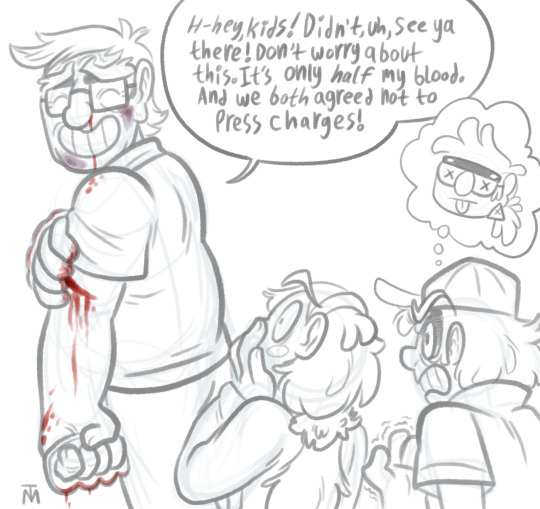
Yup.
Although most people around where Stan lives know he’s Ford’s twin (due to events like this in the past,) the two still occasionally get mistaken. This sort of thing doesn’t happen often, but Stan DOES carry brass knuckles for a reason
#gravity falls#domesticated ford#ask#my art#fanart#sketch#gravity falls au#cartoon#Stan pines#stanley pines#Mabel pines#dipper pines#carrying them is illegal in New York but we all know how much Stan respects the law#stan also deals with more minor social problems because of his resemblance to Ford#sometimes people leave dog treats on his car to mock him#thinking he’s ford#and it actually is way more upsetting to Stan than it would be if Ford had actually seen it himself
387 notes
·
View notes
Text
Trafalgar Law blushing while saying “I was hoping we could do that thing I like tonight….” But it’s you giving him a melatonin, and a cup of sleepy time tea, while playing with his hair as his falls asleep on your chest, listening to you read aloud his favorite Sora, Warrior of the Sea comic.
#trafalgar law headcanons#one piece headcanons#law headcanons#c: trafalgar d water law#trafalgar law#sleep deprived baby#one piece#domestic fluff#law x you
549 notes
·
View notes
Text
another Gahan colored sketches for @gayautisticraccoon ! thankyou for the love & support for Gahan and me xD 💖


#the devil judge#gahan#artists on tumblr#fris#tdj#kang yohan#kim gaon#digital art#digital illustration#fanart#commission open#art commissions#commission#they're so soft aaaa#domestic shit i love drawing them#lawful family#lawful husbands
209 notes
·
View notes
Text
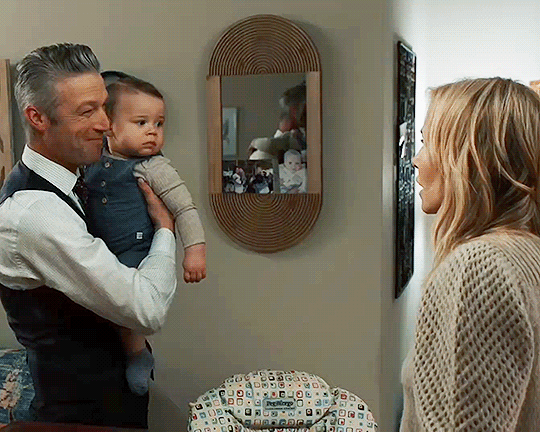
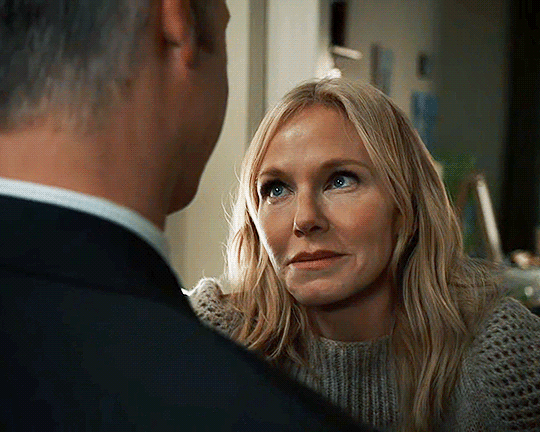


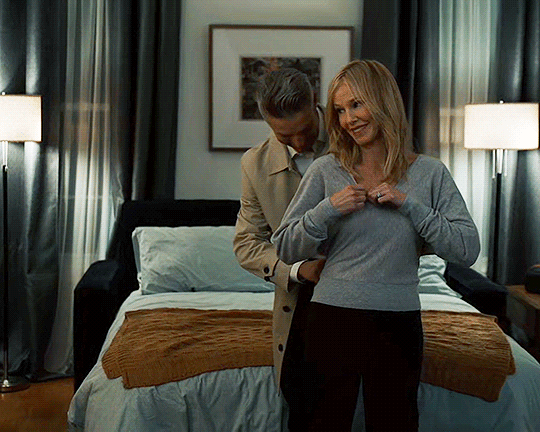
rollisi in 25x11
#*stefon voice* this episode has everything#domestic rollisi / rollisi babies / undercover rollisi / flirty rollisi / healthy relationship rollisi - u name it#amanda rollins#sonny carisi#kelli giddish#peter scanavino#BRING BACK KELLI THE SHOW IS LOST WITHOUT HER (and so am I)#svu#law and order svu#rollisi#edit:rollisi
275 notes
·
View notes
Text
Watching luffy try to befriend law like a white woman with a wild animal is so endlessly funny to me
#he is trying his goddamnedest to domesticate him#and law just looks constantly disgruntled about the situation#trafalgar law#trafalgar one piece#trafalgar d water law#monkey d. luffy#lulaw#lawlu#one piece lawlu
526 notes
·
View notes
Text



nicktoonsunite's tigerghost haunting my brain
#IF I PUT IT INTO THE WORLD IT WILL STOP HAUNTING ME#thats a straightup lie bro i have a half finished fic in my gdocs#anyways thank you so much tumblr user NTU i missed my fave childhood shows n completely forgot about el tigre.. we are all tigreheads here#tigerghost#im not gonna put it in the fr tags. NOT my afternoon lecture sketches#AND THE GRUMPY ONE FELL IN LOVE WITH THE SUNSHINE ONE... AUGHH#i think theyve got such interesting parallels. especially re: living inbetween two extremes#ghost and human. hero and villain. a bit of a bisexual slay on both counts#plus Secret hero identity vs Public antihero alterego. interesting dynamics#also the Riveras >>>>> the Fentons.. let this nice mostly supportive loving family get a traumatized half ghost son in law#(and Jazz shes aight she can come too)#timmy you truly cannot raise an eyebrow you little punk you are happy domestic partners with a boygenius
131 notes
·
View notes
Text
I could most definitely watch a whole season of just Peem and Fang as In Laws.
#we are the series#we are#gmmtv#phumpeem#tanfang#peem and fang#brothers in law#thai bl#we are series#ep 16#unexplored dynamic#but definitely so much potential#the peak level teasing#domesticity and comfort#and not to mention#they are and shall always be#my two favourites
120 notes
·
View notes
Text


Sailor Mars Luffy has been in my head since I read this story by domain-eukarya ♥
#you should def check the fanfic out#it's so cute#they're so domestic it's sickening (affectionate)#lulaw#lawlu#one piece#luffy#law#monkeydluffy#trafalgarlaw
74 notes
·
View notes
Text






forgot to post this here but heres a comic i made since i learned law hates umeboshi but corazon loves it
#one piece#one piece fanart#op#op fanart#trafalgar law#corazon#one piece corazon#donquixote rosinante#they mean sm to me i need more domestic content of them so i will make it myself#citrus art
270 notes
·
View notes
Text

🐯x👒 Domestic fluffness
#lawlu#trafalgar d. water law#law x luffy#monkey d. luffy#indialadina#doodles#fanart#one piece#luffy#domestic fluff#alternate universe#onepiece au
57 notes
·
View notes
Photo

Countries that do not have any criminal penalties for domestic violence.
by adorn_mapper
163 notes
·
View notes
Text
the thing is is that i didnt even believe in marriage hill seriously (aside from the fact that dan looks like he's itching to make divorce jokes) but between the commitment issues line being dropped and the energy of this video the view from marriage hill is looking stunning all of a sudden
#phan#dan and phil#phil lester#dan howell#og post#like idk they seemed more like the “domestic partners in a common-law marriage” type but apparently phil wants to kill his *husband*
41 notes
·
View notes
Text

source 1
#destiel meme#destiel meme news#united states#us news#news#fuck yeah Illinois!!!!#gun control#firearms#gun tw#illinois#illinois government#us law#us lawmakers#us politics#please understand that this isn't anti gun policy or even directly gun control#it just aims to prevent guns from being obtainable or WANTING to be obtained by people who shouldn't have them#like children or radicalized individuals or domestic terrorists#it's just controlling ads people jesus christ#if your hot take is that keeping guns from kids violates YOUR second amendment rights kindly fuck off
362 notes
·
View notes